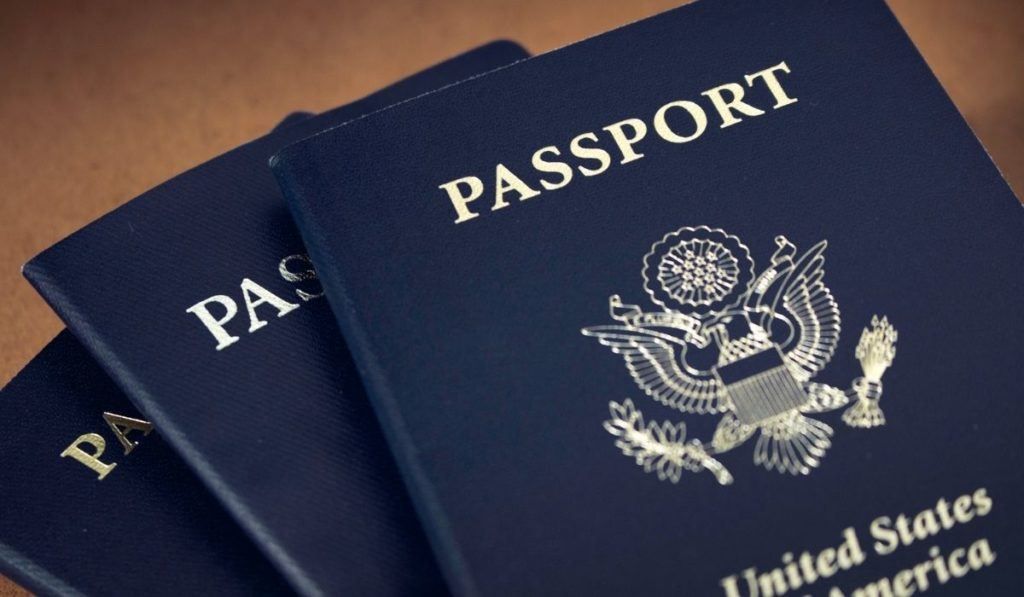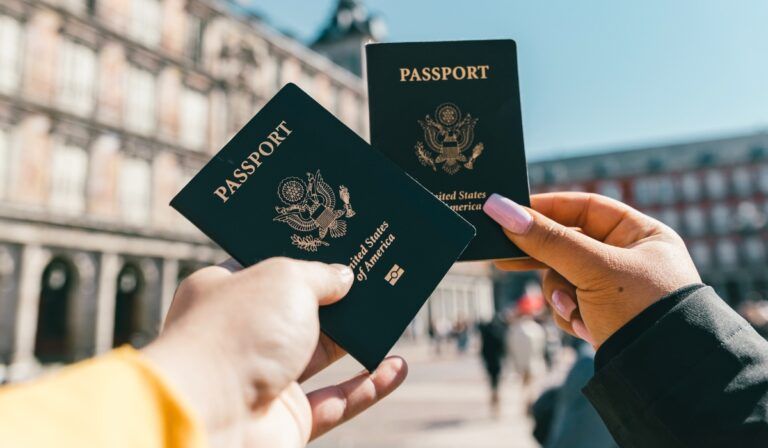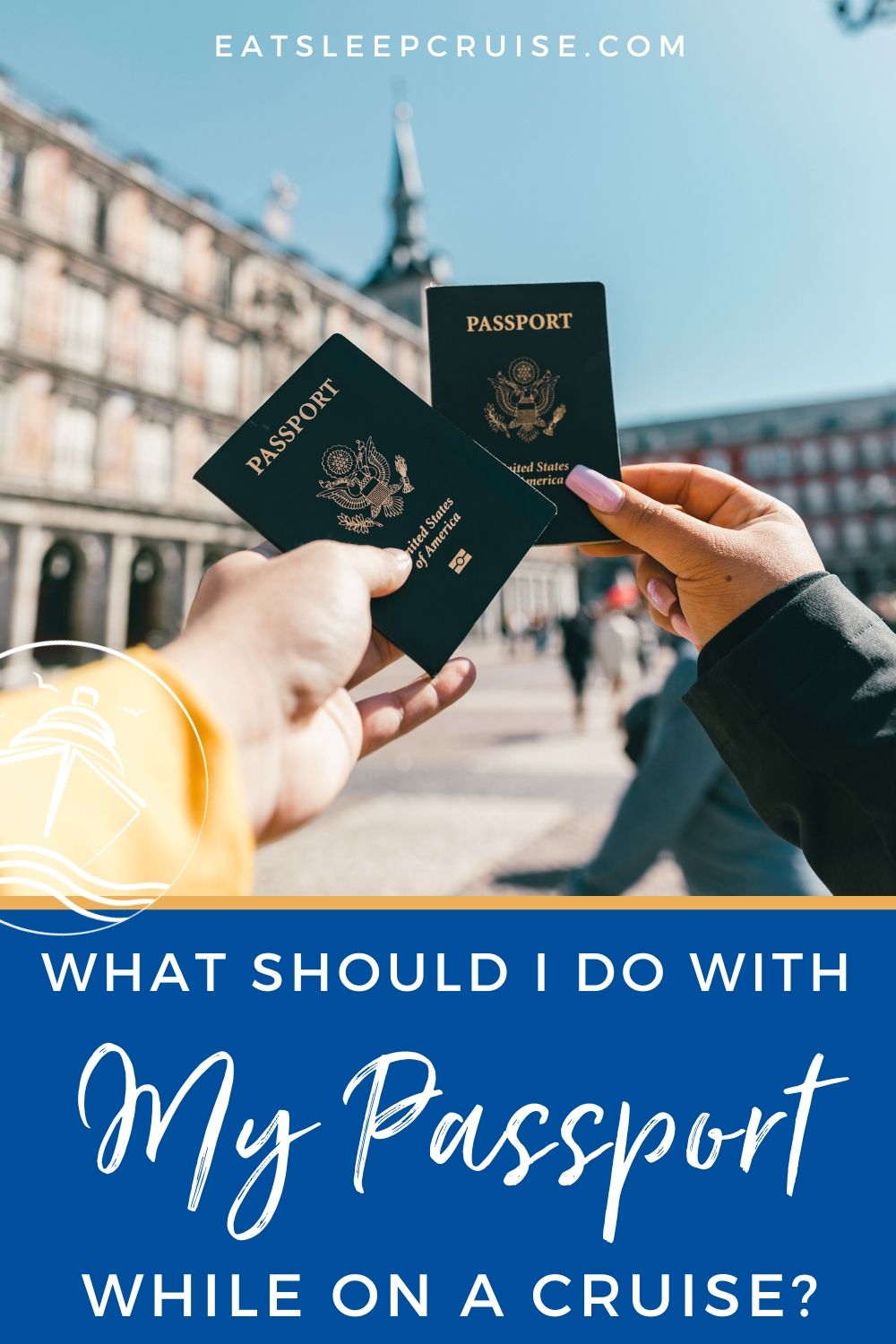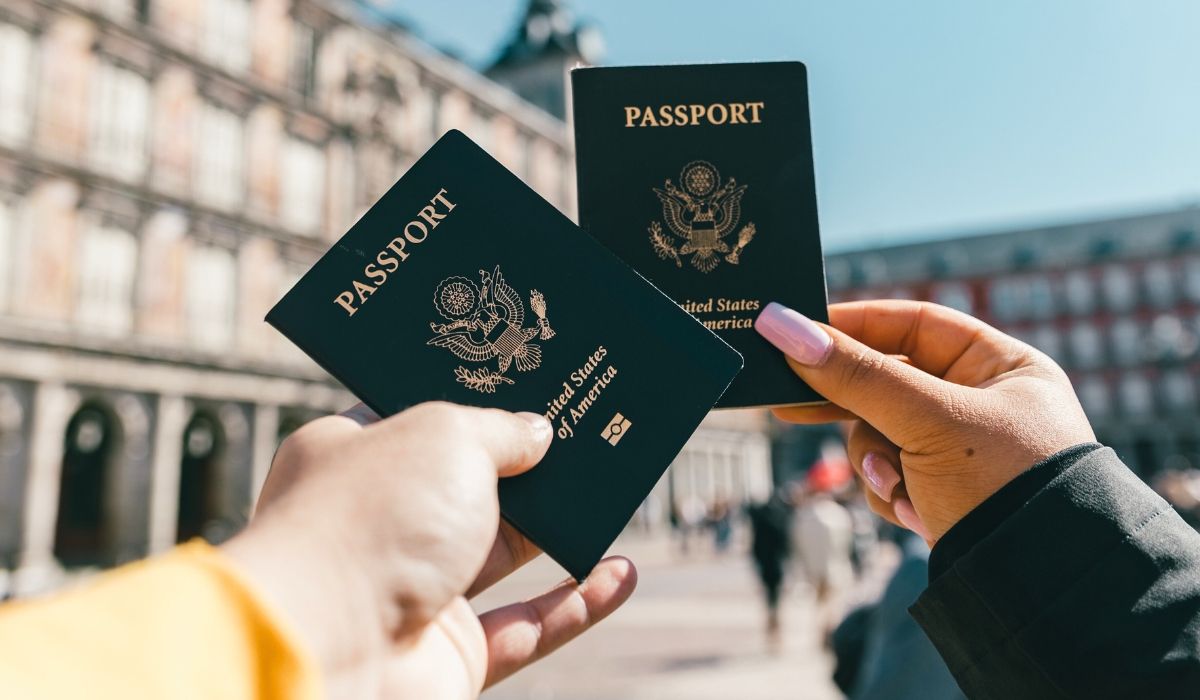Among the cruise community, there’s long been a debate about whether it’s best to bring your passport with you when you get off the ship in a port of call. If you leave it on board and are in a foreign port, you are technically heading into a different country without the document needed if you want to travel back home but miss the ship for some reason. But if you bring it, you run the risk of losing your passport or having it stolen. This dilemma is the reason there are people on both sides of the coin in this discussion.
Call to Book Your Next Cruise Now: 1-855-228-5584!
What Should I Do With My Passport on a Cruise?
Should I bring my passport into port with me?
Since there are pros and cons to bringing your passport into port, what’s the best answer to this question? Most of the time, the answer is no.
There may be certain ports or instances where it’s best (or required) to bring your passport ashore with you, but most of the time you can leave it in your cabin on the ship.

This question was posed recently to Carnival Cruise Line’s brand ambassador John Heald. He replied saying that you “should not take your original passport with you when you go ashore.”
What happens if you can’t make it back to the ship in time or have a medical emergency in port? For at least some cruise lines — including Carnival — there’s a policy in place.
Heald’s post continued: “Your passport would be collected from the guest cabin (including retrieving it from the safe) and by our housekeeping officers, a Guest Services officer and someone from our security team. We would then return the passport to the ship’s agent. We have one in every single Port who takes care of the ship’s needs during the time there. The agent would return the original passport to you.”
While this is Carnival’s policy, don’t assume this is the policy of every cruise line. We have heard of other instances where someone is left in port and had to get a new passport at the U.S. Embassy in that country to get back home. However, for the lines that do this, it’s certainly a policy that provides additional peace of mind about leaving your passport on the ship and not worrying about something happening to it during a day ashore.
If you still feel the urge to bring your passport with you, consider buying a hidden money belt, undergarments with secret pockets, or some other accessory that goes under your main clothes to conceal it. If that’s not a good option, put it in the interior-most pocket of your purse or backpack.
What identification should I bring into port?
Since you need identification of some form to get back on the ship during a port day (in addition to your cruise card), you may be wondering what’s best to use since we don’t recommend using your passport.
For most guests, we recommend using your driver’s license or an equivalent government-issued ID card. Some cruisers have both a passport book and passport card. And they suggest leaving your passport book on the ship but bringing the passport card ashore.
It’s also a good idea to store a photo of your passport on your phone and/or have a photocopy of your passport to take ashore with you for emergencies. Additionally, this could possibly work as ID to get back onto the ship in a pinch (but don’t rely on it).

EXCLUSIVE SAVINGS: Take Advantage of the Cruise Deals Happening Now!
Do I really even need a passport for a cruise?
While we won’t go into great detail here, it is true that not all cruises require a passport. For U.S. citizens, a passport is not essential for a cruise that begins and ends in the same U.S. port. On these closed loop cruises, a birth certificate and a government issued ID are the only forms of documentation you will need in addition to a valid boarding pass.
If you are looking to cruise without a passport, there are quite a few cruise destinations that don’t require one.
However, we still always recommend that cruisers travel with one. In the event of unforeseen circumstances, it will make it easier to return home to the United States.
Should I leave my other valuables on board?
Discussing passport safety, it’s also worth talking about how to handle other valuables while on a ship and in port.
It’s one thing to leave your clothes and toiletries out in plain sight in your cabin, but another thing entirely when it comes to your wallet, electronics, fine jewelry, and other valuables. For things like your wallet, expensive jewelry, watches, and yes — your passport — we recommend leaving it in your safe most of the time unless you actively need it or are using it.
Consider leaving smaller electronics such as mini tablets or headphones in the safe during the day too. You’ll want to tuck away larger things like laptops and designer purses while you’re out of your cabin for the day, perhaps in your suitcase under the bed, the closet, or a drawer.
We aren’t making these recommendations to suggest that stateroom attendants and any other cruise ship crew members who may have access to your cabin are not trustworthy. In our experience, we have wonderful stateroom attendants who we haven’t had any reason not to trust. However, our overall trust shouldn’t negate precautionary measures entirely.
You don’t really know anything about the people working hard to make your cruise happen — and 99 times out of 100 they’re wonderful, trustworthy people. With that said, there are still people with ulterior motives out there. It’s better to be safe rather than sorry.

What valuables should I leave at home?
On the topic of traveling with valuables, it’s a good idea to evaluate which items you should take along with you on the trip. Some people choose to leave their pricier sunglasses, watches, and even their real engagement or wedding rings at home. Instead, they opt to bring less expensive, less meaningful versions. This way if you lose items or they’re stolen, it won’t be as big of a deal.
Also, when traveling with valuables including important paperwork relevant to where you’re staying/what you’re doing on your trip, make sure to keep those items with you at all times. For example, on embarkation day, keep your boarding passes, trip insurance paperwork, passport, wallet, and electronics in your hand luggage. Don’t pack those things in your suitcases that you will hand off to the porters at the terminal.
The same goes for flying. Keep those things in the luggage that will stay with you, not the ones that you’re checking at the airport. The more you can keep your valuables close, the smaller chance of them being lost, stolen, or broken somewhere en route to your destination.
Comments
Do you agree with John Heald’s response? What do you do with your passport on a cruise? Drop us an anchor below to share whether you take it with you or leave it on the ship.















1 comment